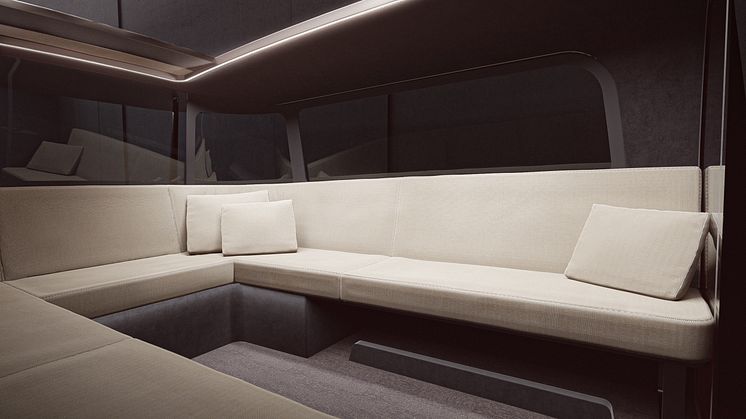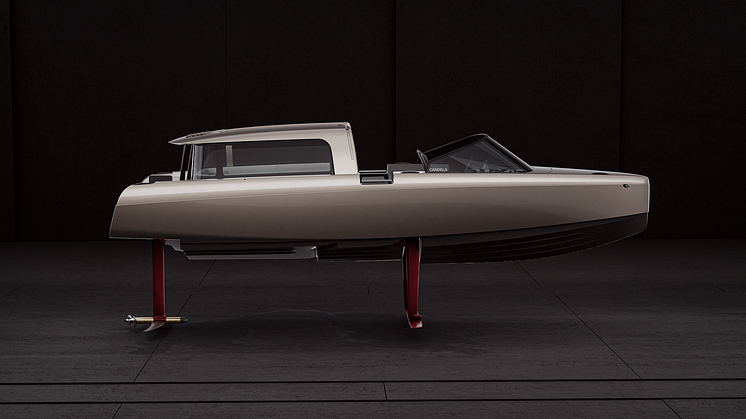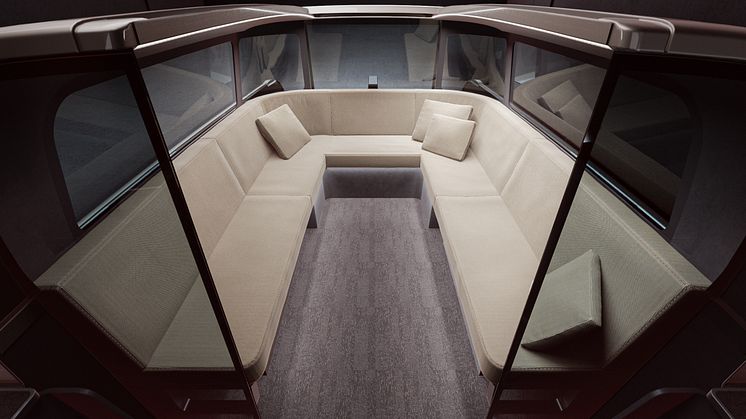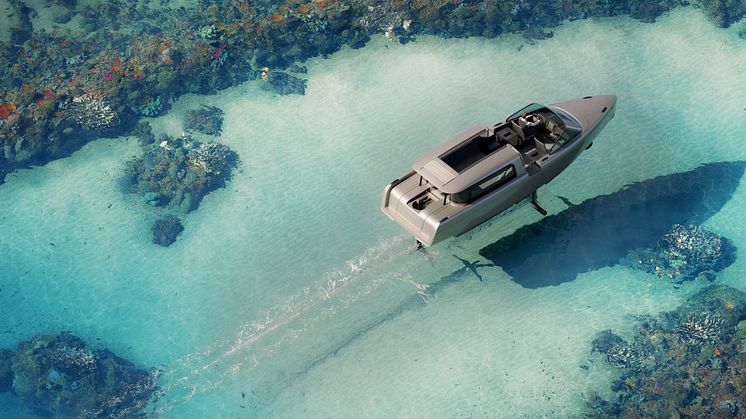
Press release -
Coral reefs die from noise pollution. This sea-skimming electric hydrofoiler can be the solution.
Sound pollution from motorboats is increasingly threatening the planet’s most biologically diverse and sensitive ecosystems. Swedish electromobility company Candela can address this with its flying, whisper-quiet explorer vessel P-8 Voyager.
Today, Candela CEO and founder, Gustav Hasselskog, speaks at COP27.
Coral reefs are among the most biologically diverse ecosystems worldwide, but also among the most endangered. While climate change, ocean acidification, and fishing contribute to reef deterioration, anthropogenic noise (human-made noise pollution) has been increasingly acknowledged for its negative impact on coral reef ecosystems.
Motorboat sound pollution is a major — and often deadly — menace to the many species living around reefs.
In a 2022 study published in Nature, scientists at the Great Barrier Reef found that the sounds from small outboard engines rendered fish unable to respond to alarm odours with an antipredator response, making them vulnerable and passive.
When scientists at another part of the Great Barrier Reef experimented with limiting the number of boats within 100m of a reef, they found that fish offspring increased their likelihood of survival by 100%.
While there were more than 90,000 motorboats registered on the Great Barrier Reef alone, there’s hope that the oceans surrounding coral reefs could be a lot quieter in the future – at least that is the vision laid forth by Candela, the Swedish tech company behind the recently launched Candela P-8 Voyager, an 8-passenger electric hydrofoil vessel, which is dubbed the first “electric exploration vessel made specifically for zero-impact tourism in sensitive waters”.
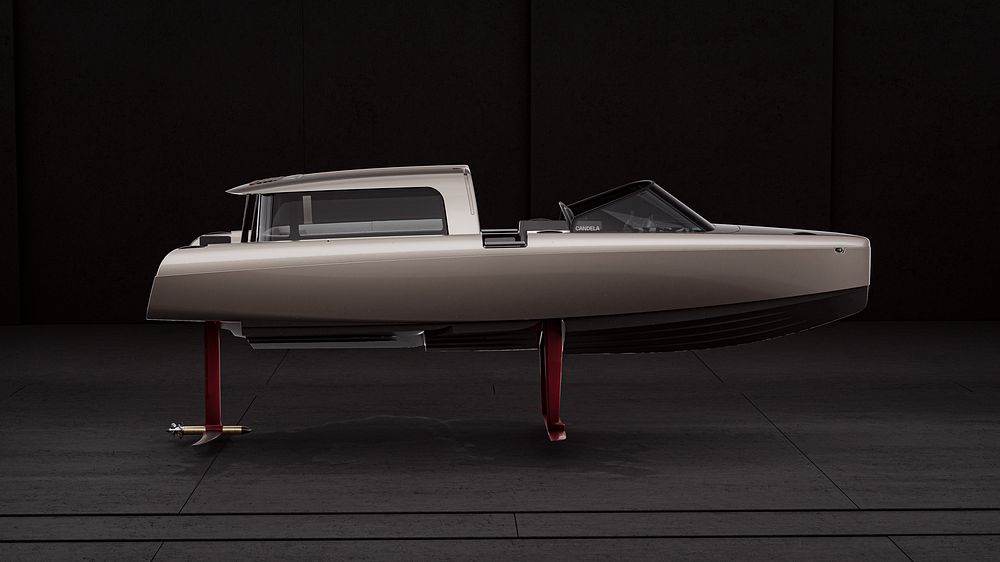
Flying on computer-guided underwater wings, hydrofoils, the P-8 Voyager barely creates a discernible wake as it skims across the surface at 30 knots. The low wake is a testament to the P-8’s energy efficiency, which in turn gives it unprecedented electric range and speed. For the coral reefs, this also means zero wake erosion, which otherwise is a threat, especially in shallow waters.
Powering the electric speedboat is the most silent marine motor ever– the company’s proprietary Candela C-POD motor. It’s torpedo-shaped casing contains two permanent electric motors that directly drive the propellers, eliminating the need for a noisy mechanical transmission. Even at high speeds, the Candela C-POD is barely audible for the human ear.
”Conventional speedboats - such as tourist RIBs - user huge amounts of petrol, and as their hulls displace water, waves are formed that erode shorelines and damage coral reefs and other sensitive ecosystems. Other problems are oil leaks, exhaust emissions, and of course sound pollution. Candela P-8 Voyager addresses these problems, while offering a better experience for passengers”, says Gustav Hasselskog, CEO and founder of Candela Technology, based in Stockholm.
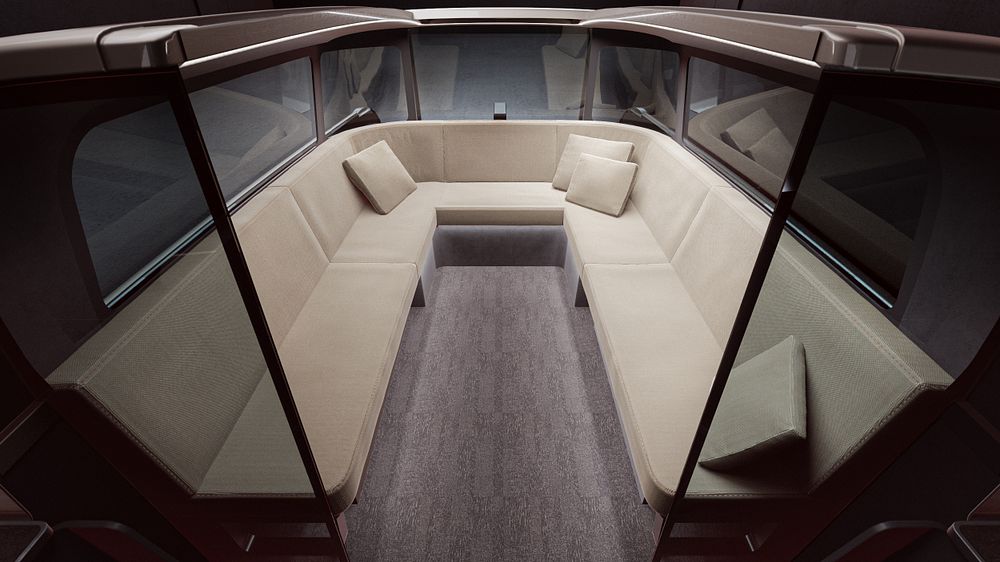
Being 90-95% cheaper to run than combustion engine boats, the efficient P-8 Voyager also offers a clear incentive for tour boat operators that wish to switch to a more sustainable form of reef tourism.
Joining leaders and stakeholders from across the globe during Wednesday’s COP27 Summit, Gustav Hasselskog will be interviewed at the COP 27 Climate Hub and talk about Candela’s vision for silent, emission-free maritime transport and the company’s game-changing fleet of electric hydrofoil vessels, which currently is being built and further developed in Stockholm.
Candela’s zero-impact vessels are available for media test drives in Stockholm.
Related links
Topics
Candela is a Swedish tech company whose mission is to speed up the transition to fossil fuel-free lakes and oceans.
By building electric hydrofoil vessels that are superior to combustion engine boats and ships, Candela aims to rival the fossil fuel boat domination.
Candela's hydrofoil technology reduces energy usage by 80% compared to conventional vessels, which allows for long range and high speed at sea, using electric power only.
Candela was founded in 2014 in Stockholm, Sweden, by engineer Gustav Hasselskog. After five years of R&D, the company launched its first leisure boat, the limited production run Candela C-7, in 2019. Being the first electric hydrofiling boat in serial production, it set several records for range and speed for electric boats. 32 units were made and delivered all over the world through 2021.
In 2022, Candela will start ship the mass market successor to C-7, Candela C-8, which is the best-selling electric boat on the market with close to 150 orders even before deliveries have started.
In 2023, Candela will be expanding its lineup to commercial vessels. The P-8 Voyager, the first no-impact explorer vessel, was unveiled in 2022 and will hit the water in 2023. The Region of Stockholm will take delivery of the world's first electric hydrofoiling ferry in 2022, Candela P-12 Shuttle. A 30-passenger vessel with a top speed of 30 knots, it will be the fastest electric ship to date, and also the longest-range. Running between the suburb of Ekerö and Stockholm, it can potentially cut travel times from 55 minutes to 25 minutes.
Candela employs 180 people at its facilities in Stockholm, Lidingö and Rotebro.



